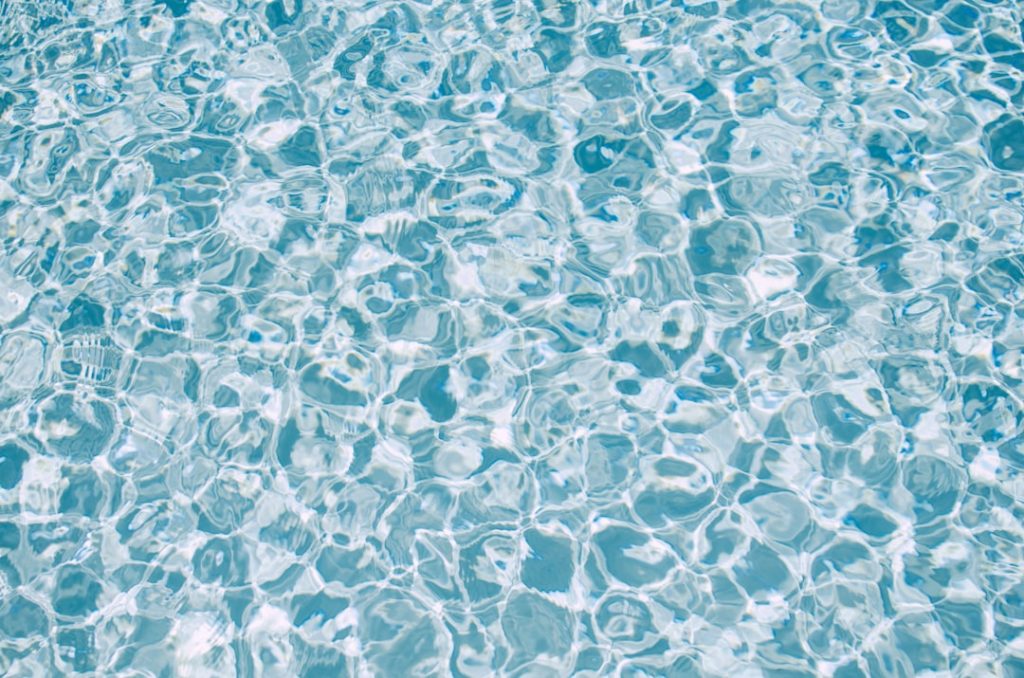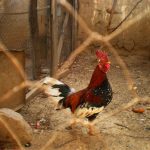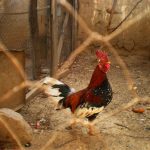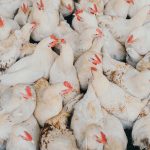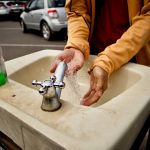During winter, providing warm water for chickens is essential for their health and well-being. Chickens require water for hydration, body temperature regulation, and digestion. In cold weather, water sources may freeze, making it difficult for chickens to access.
Without warm water, chickens can become dehydrated, leading to health issues and reduced egg production. Cold water may also discourage chickens from drinking enough, further compromising their health. Chickens are particularly vulnerable to cold temperatures due to their small size and limited insulation.
Consuming cold water can lower their body temperature, making it harder for them to maintain warmth in winter. This can result in stress and a weakened immune system, increasing their susceptibility to illness. Providing warm water helps chickens stay comfortable and healthy during colder months, promoting better egg production and overall vitality.
Table of Contents
- 1 Choosing the Right Watering System for Winter
- 2 Insulating Water Containers to Retain Heat
- 3 Using Heated Waterers for Easy Maintenance
- 4 Implementing a Regular Watering Schedule
- 5 Providing Additional Heat Sources in the Coop
- 6 Monitoring Water Temperature and Health of Chickens
- 7 FAQs
- 7.1 What are the best ways to keep chickens’ water warm in the winter?
- 7.2 What is a heated waterer and how does it work?
- 7.3 How can I insulate my chickens’ water containers to keep the water warm in the winter?
- 7.4 What are heated bases or pads and how do they help keep chickens’ water warm in the winter?
- 7.5 Are there any alternative methods for keeping chickens’ water warm in the winter?
Key Takeaways
- Chickens need access to warm water in winter to stay hydrated and maintain their health
- Choose a watering system that prevents water from freezing and is easy to maintain
- Insulate water containers to retain heat and prevent freezing
- Heated waterers are a convenient option for keeping water warm and clean
- Implement a regular watering schedule to ensure chickens have access to warm water throughout the day
Choosing the Right Watering System for Winter
Heated Waterers: A Popular Choice
One popular choice is a heated waterer, which is specifically designed to keep water from freezing in cold temperatures. These heated waterers come in various sizes and styles, including heated water bowls, heated water fountains, and heated water dispensers. They are equipped with a heating element that prevents the water from freezing, ensuring that chickens have access to warm water at all times.
Insulated Water Containers: A Traditional Option
Another option is an insulated water container, which can help retain heat and prevent water from freezing for a longer period. These containers are typically made of durable materials such as plastic or metal and are designed to keep the water at a stable temperature. Insulated water containers are a great option for those who prefer a more traditional watering system but still want to ensure that the water stays warm in winter.
Heated Base Plates and Pads: An Alternative Solution
Lastly, some chicken owners opt for heated base plates or heated pads that can be placed underneath traditional water containers to prevent freezing. These heating elements are designed to keep the water from freezing by providing a constant source of warmth.
Choosing the Right Watering System for Your Flock
When choosing the right watering system for winter, it is important to consider the size of your flock, the climate in your area, and your own preferences for ease of maintenance.
Insulating Water Containers to Retain Heat

Insulating water containers is an effective way to retain heat and prevent water from freezing in winter. There are several methods for insulating water containers, including using insulation jackets or wraps specifically designed for this purpose. These insulation jackets are made of materials such as foam or neoprene and are designed to wrap around the water container, providing an extra layer of insulation to retain heat.
Another method for insulating water containers is to place them inside a larger insulated container or box. This can help create a barrier against the cold temperatures and prevent the water from freezing. Additionally, you can use materials such as straw or hay to insulate the space around the water container, further helping to retain heat.
Furthermore, placing the water containers in a sheltered area such as a coop or a covered run can also help prevent freezing. By keeping the water containers out of direct wind and precipitation, you can help maintain a warmer temperature around the water, reducing the likelihood of freezing. Insulating water containers is an important step in ensuring that chickens have access to warm water throughout the winter months.
Using Heated Waterers for Easy Maintenance
Heated waterers are an excellent option for those looking for easy maintenance during the winter months. These specially designed waterers are equipped with a heating element that prevents the water from freezing, eliminating the need for constant monitoring and manual intervention. Heated waterers come in various styles and sizes, including heated water bowls, heated water fountains, and heated water dispensers, making it easy to find the right option for your flock.
One of the main advantages of using heated waterers is that they require minimal maintenance compared to traditional watering systems. With a heated waterer, you can simply plug it in and let it do its job of keeping the water warm and preventing freezing. This can save you time and effort during the colder months when other chores on the farm may require more attention.
Additionally, heated waterers are designed with safety features to prevent overheating and ensure that the water remains at a consistent temperature. This can provide peace of mind for chicken owners who want to ensure that their flock has access to warm water without the risk of accidents or malfunctions. Overall, using heated waterers can make winter maintenance easier and more convenient for chicken owners.
Implementing a Regular Watering Schedule
Implementing a regular watering schedule is essential for ensuring that chickens have access to warm water throughout the winter months. By establishing a consistent routine for checking and refilling water containers, you can help prevent dehydration and ensure that your flock stays healthy and hydrated. One effective way to implement a regular watering schedule is to check the water containers at least twice a day, preferably in the morning and evening.
This allows you to monitor the temperature of the water and refill as needed to ensure that it remains warm and accessible to your chickens. Additionally, by checking the water containers regularly, you can also identify any potential issues such as leaks or malfunctions in the watering system. Furthermore, it is important to encourage your chickens to drink by offering fresh and warm water regularly.
Chickens may be less inclined to drink cold water in winter, so providing warm water at regular intervals can help ensure that they stay hydrated. By implementing a regular watering schedule, you can help maintain the health and well-being of your flock during the colder months.
Providing Additional Heat Sources in the Coop
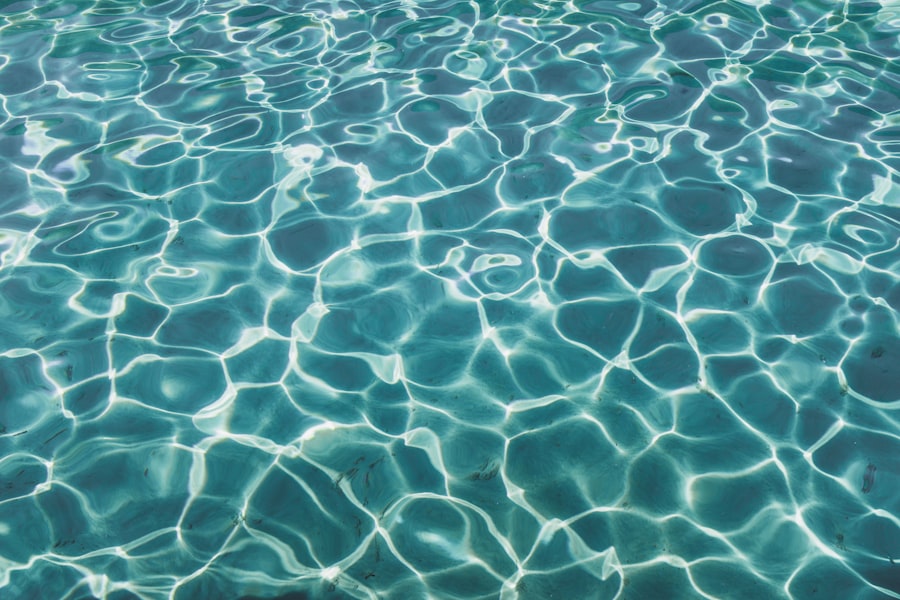
Supplemental Heat Sources
In addition to ensuring that chickens have access to warm water, providing additional heat sources in the coop can help keep them comfortable during winter. One common method is to use heat lamps or infrared bulbs to provide supplemental warmth in the coop. These heat sources can be placed strategically to create a warmer environment without overheating the space.
Heated Perches and Bedding
Another option is to use heated perches or heating pads specifically designed for poultry. These products are designed to provide warmth directly to the chickens while roosting, helping them stay comfortable and maintain their body temperature during cold nights. Additionally, providing extra bedding such as straw or wood shavings can help insulate the coop and provide additional warmth for your flock.
Safety Precautions
It is important to note that when using additional heat sources in the coop, safety should be a top priority. Ensure that all heating elements are securely installed and kept away from flammable materials such as bedding or feathers. Additionally, regularly check for any signs of malfunction or damage to prevent potential fire hazards.
By providing additional heat sources in the coop, you can help create a more comfortable environment for your chickens during the winter months.
Monitoring Water Temperature and Health of Chickens
Monitoring the temperature of the water and the health of your chickens is crucial during winter. Regularly checking the temperature of the water using a thermometer can help ensure that it remains warm and accessible to your flock. If you notice that the temperature of the water is dropping significantly, it may be time to refill or replace it with fresh warm water.
Furthermore, observing the behavior and health of your chickens can also provide valuable insights into their well-being during winter. Signs of dehydration or stress such as decreased egg production, lethargy, or pale combs and wattles should be monitored closely. Additionally, keeping an eye out for any signs of illness or discomfort can help you address any potential health issues promptly.
In conclusion, ensuring that chickens have access to warm water during winter is essential for their overall well-being and productivity. By choosing the right watering system, insulating water containers, using heated waterers, implementing a regular watering schedule, providing additional heat sources in the coop, and monitoring water temperature and chicken health, you can help your flock stay healthy and comfortable throughout the colder months.
If you’re looking for tips on how to keep your chickens warm in the winter, you might also be interested in learning about the importance of the floor of the chicken coop. This article from Poultry Wizard discusses the different types of flooring options for chicken coops and how they can impact the overall health and comfort of your flock. Check it out here.
FAQs
What are the best ways to keep chickens’ water warm in the winter?
There are several effective methods for keeping chickens’ water warm in the winter, including using heated waterers, insulating water containers, and using heated bases or pads.
What is a heated waterer and how does it work?
A heated waterer is a specially designed water container that includes a built-in heating element to prevent the water from freezing. These units typically plug into an electrical outlet and keep the water at a temperature that prevents freezing.
How can I insulate my chickens’ water containers to keep the water warm in the winter?
You can insulate water containers by wrapping them in foam insulation or using insulating materials such as bubble wrap or reflective insulation. This helps to retain the heat from the water and prevent it from freezing.
What are heated bases or pads and how do they help keep chickens’ water warm in the winter?
Heated bases or pads are devices that are placed underneath water containers to provide a source of heat that prevents the water from freezing. These units are typically designed to be used with standard water containers and can be plugged into an electrical outlet.
Are there any alternative methods for keeping chickens’ water warm in the winter?
Some alternative methods for keeping chickens’ water warm in the winter include using heated rocks or bricks in the water containers, using solar-powered water heaters, or using passive solar designs to keep the water from freezing. However, these methods may not be as reliable as using dedicated heated waterers or bases.
Meet Walter, the feathered-friend fanatic of Florida! Nestled in the sunshine state, Walter struts through life with his feathered companions, clucking his way to happiness. With a coop that’s fancier than a five-star hotel, he’s the Don Juan of the chicken world. When he’s not teaching his hens to do the cha-cha, you’ll find him in a heated debate with his prized rooster, Sir Clucks-a-Lot. Walter’s poultry passion is no yolk; he’s the sunny-side-up guy you never knew you needed in your flock of friends!

